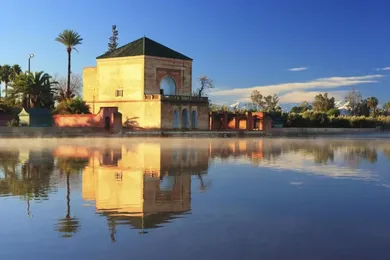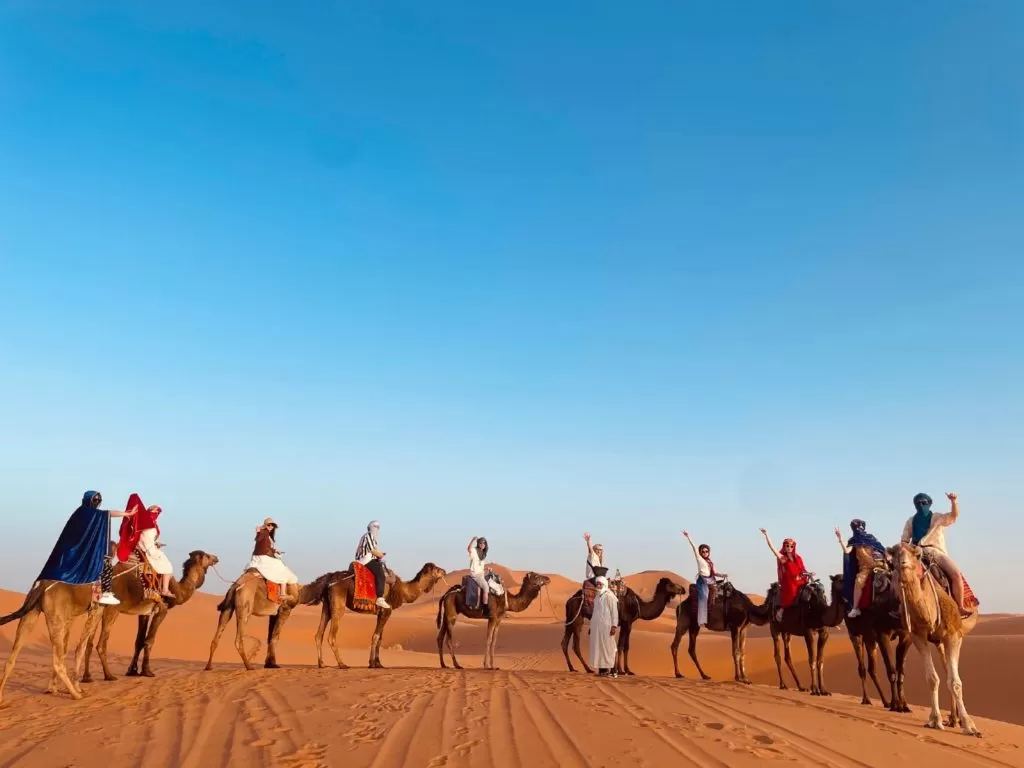Stay Informed: Morocco Travel Advisory
Check out our Morocco travel advisory to learn about The wonders of Morocco. Our staff offers professional advice and helpful hints to ensure a smooth travel. From vibrant souks to calm deserts, we’ll make sure you have no trouble navigating this magical land. Use our travel advisories to stay informed and have a fun and safe trip.
At Morocco Friendly Travel, we recognize the value of giving tourists trustworthy advice and information. For this reason, we provide travel advisories for Morocco so that you are aware of any updates or necessary safety measures. Our staff is committed to making sure your trip is as easy and enjoyable as possible, whether that means offering suggestions for off-the-beaten-path locations, guidance on cultural etiquette, or pointers for navigating busy markets.
Key Tips for Traveling in Morocco
Stay updated with the latest Morocco travel advisory to ensure a smooth and enjoyable trip. Our comprehensive guide provides valuable insights and tips to navigate the country’s diverse landscapes and vibrant culture.



Do I need a visa to visit Morocco?
Most visitors can enter Morocco visa-free for up to 90 days. However, it’s crucial to check visa requirements based on your nationality before traveling. Ensure your passport has at least six months of validity beyond your planned departure date.
What is the best time to visit Morocco?
The best times to visit Morocco are spring (March to May) and fall (September to November) when temperatures are mild, and the weather is pleasant for exploring cities and natural attractions. Summers can be hot, especially in inland areas, while winters can bring cooler temperatures and occasional rain, particularly in the north.
Is it safe to travel to Morocco?
Generally, Morocco is a safe destination for travelers. However, it’s essential to remain vigilant, especially in crowded areas and tourist hotspots where pickpocketing and petty theft can occur. Respect local customs and dress modestly to avoid unwanted attention.

Can I drink tap water in Morocco?
It’s recommended to avoid drinking tap water in Morocco, as it may not be safe for consumption. Stick to bottled water, which is widely available in shops and supermarkets. When dining out, ensure that ice cubes are made from purified water to prevent stomach upset.

What languages are spoken in Morocco?
Arabic and Berber are the official languages of Morocco, but French is also widely spoken, especially in urban areas and tourist destinations. English is becoming more common, particularly among younger generations and those working in the tourism industry, but learning a few basic phrases in Arabic or French can enhance your travel experience.

How should I handle currency exchange?
It’s advisable to exchange currency at banks or official exchange offices (bureaux de change) to get the best rates. Avoid exchanging money at hotels or unofficial street vendors, as they may offer less favorable rates or counterfeit currency. ATMs are widely available in cities and major towns, accepting most international debit and credit cards.

Is bargaining acceptable in Morocco?
Bargaining, or haggling, is a common practice in Morocco, especially in souks (markets) and small shops. It’s expected that you negotiate the price, so don’t be afraid to haggle respectfully. Start by offering around half of the initial asking price and be prepared to meet somewhere in the middle.

What is the tipping etiquette in Morocco?
Tipping is customary in Morocco, particularly in restaurants, cafes, and for services such as tour guides and drivers. While tipping is discretionary, leaving around 10% of the total bill is considered appropriate for good service.

Can I use my cell phone in Morocco?
Most international cell phones will work in Morocco, but it’s essential to check with your mobile provider about international roaming charges before your trip. Alternatively, you can purchase a local SIM card upon arrival, which offers affordable data and calling plans for the duration of your stay.

Are credit cards widely accepted?
Credit cards are accepted in many hotels, restaurants, and larger stores in Morocco, especially in tourist areas and major cities. However, it’s always a good idea to carry some cash, particularly in rural areas and smaller establishments where card acceptance may be limited.

Is it safe for solo female travelers?
Morocco is generally safe for solo female travelers, but it’s essential to take precautions and be aware of your surroundings. Dress modestly, especially in more conservative areas, and avoid walking alone at night. Joining group tours or booking our private solo tour .

What are the must-visit destinations in Morocco?
Morocco offers a wealth of diverse destinations to explore, including the bustling medinas of Marrakech and Fez, the blue-hued streets of Chefchaouen, the ancient Roman ruins of Volubilis, the stunning landscapes of the Atlas Mountains, and the vast Sahara Desert with its majestic sand dunes.

Do I need any vaccinations before traveling to Morocco?
While no vaccinations are required to enter Morocco, it’s advisable to be up-to-date on routine vaccinations such as measles, mumps, and rubella (MMR), as well as hepatitis A and typhoid, which can be contracted through contaminated food or water. Depending on your travel plans and personal health history, consult with a healthcare provider for specific recommendations.

Is the Moroccan food safe to eat?
Moroccan cuisine is delicious and diverse, with influences from Arab, Berber, and Mediterranean culinary traditions. Not that the Street food can be safe to eat if it’s freshly prepared and served hot, but it’s essential to choose vendors with clean and hygienic practices.

Can I visit the Sahara Desert on a day trip?
While it’s possible to visit the edge of the Morocco Desert on a day trip from cities like Marrakech or Merzouga, from Marrakech you can visit Agafay Desert, and for a more immersive experience, consider spending at least one night in a desert camp. Overnight camel treks and camping under the stars offer a unique opportunity to witness the desert’s beauty and tranquility.

What souvenirs should I buy in Morocco?
Morocco is known for its vibrant markets filled with handicrafts and artisanal goods. Popular souvenirs include traditional Moroccan carpets, leather goods such as bags and shoes, intricately designed ceramics, decorative lamps and lanterns, and fragrant spices and herbs such as saffron, cumin, and paprika.

Are there any cultural events or festivals I should attend in Morocco?
Morocco hosts a variety of cultural events and festivals throughout the year, celebrating everything from music and dance to religious holidays and traditional crafts. Some of the most popular festivals include the Fes Festival of World Sacred Music, the Gnaoua World Music Festival in Essaouira, and the Rose Festival in the Dades Valley.
Morocco Travel Advisory
Morocco is a fascinating place that is well-known for its colorful culture, extensive history, and friendly people. Morocco provides visitors with an unforgettable experience that includes vibrant souks, magnificent architecture, and breathtaking scenery. Visitors to Morocco can generally anticipate a friendly atmosphere and friendly locals eager to share their traditions and customs, though it’s always a good idea to stay informed about travel advisories. Every traveler will be captivated by the sights and sounds of authentic Moroccan cuisine as well as the winding alleys of ancient Medinas. Morocco therefore assures you of an amazing journey full of warmth and hospitality, whether you choose to hike the magnificent Atlas Mountains or just stroll through the vibrant markets of Marrakech.